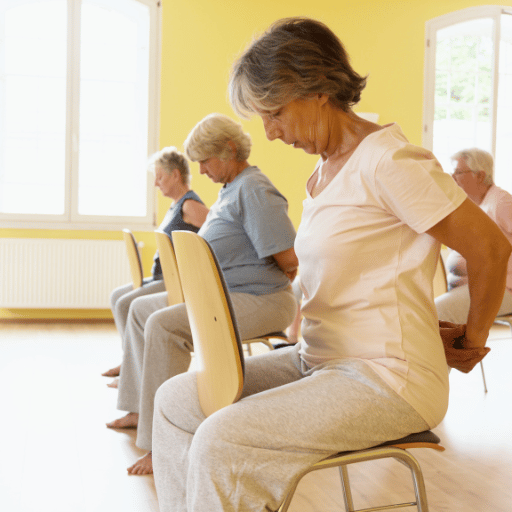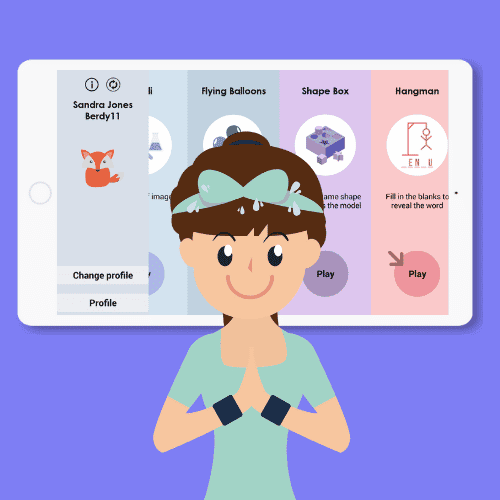Interactive activities are an excellent way of stimulating the elderly and promoting their physical and mental well-being. Whether for seniors living at home or in a residence, these activities offer opportunities for entertainment, socialization and cognitive development. In this article, we present ten exciting, interactive activities for the elderly, which can be carried out in the comfort of their own homes. These activities are designed to stimulate cognitive function, maintain social engagement and promote an active, fulfilling life.
Interactive Activities to Stimulate the Elderly
1. Classic Board Games
Classic board games are an excellent activity for older people, providing an opportunity for socialization and entertainment. Games such as chess, checkers, dominoes and cards can help stimulate memory, concentration and strategic skills. Organize regular game nights with friends and family, or join local clubs to enjoy the social interaction and competitive fun of these timeless games.
2. Artistic activities
Artistic activities such as painting, drawing and sculpting are ideal for stimulating creativity and self-expression in older people. They also offer an opportunity to relax and concentrate on a pleasurable activity. Encourage seniors to explore different artistic mediums and create unique works. You can also organize group art sessions or call on art therapy specialists for a more enriching experience.

3. Adapted physical exercise
Physical activity is essential to maintain the health and mobility of the elderly. Offer exercises adapted to their physical condition, such as walking, gentle yoga, light dancing or stretching sessions. These activities help strengthen muscles, improve balance and flexibility, and promote good cardiovascular health. Don’t forget to consult a health care professional before starting an exercise program to ensure that it is safe and appropriate for the specific needs of the elderly person.

4. Memory and reflexion games
Memory and puzzle games are excellent activities for stimulating cognitive function in the elderly. Puzzles, crosswords, memory games and riddles can help maintain mental acuity, improve concentration and stimulate short-term memory. Choose games suited to the older person’s level of difficulty, and encourage them to take on regular challenges to keep their brain active and engaged.
5. Reading and Book Club
Reading is an enriching activity that offers escape, mental stimulation and an opening onto new worlds. Encourage seniors to read books of their choice, from novels to biographies to specialized magazines. Organize a book club where members can share their impressions of books they’ve read, discuss themes and recommend new reading material. This will encourage socialization and the exchange of ideas between participants.
6. Digital Board Games
With advances in technology, many classic board games are now available in digital form. Tablets and smartphones offer a variety of interactive games suitable for the elderly. From word games to strategy games to reflex games, there are a multitude of entertaining options accessible via mobile apps or online platforms. This allows seniors to enjoy board games even if they can’t physically play them with other people.

7. Music and singing
Music has an incredible power to enliven the spirit and stimulate the emotions. Encourage seniors to listen to the music of their choice, whether it’s their favorite songs, classical music or relaxing music. You can also organize group singing sessions or invite them to learn to play a musical instrument. Group singing can reinforce a sense of belonging, stimulate memory and promote socialization. Choose popular songs and encourage everyone to join in by singing along. You can even organize small shows where participants can showcase their musical talents in front of an audience. It’s a great way to bond and share joyful moments.
8. Culinary activities
Cooking can be an interactive and stimulating activity for the elderly. Encourage them to prepare simple, tasty recipes, providing them with ingredients adapted to their dietary needs. Cooking together provides an opportunity to socialize and share culinary experiences. What’s more, the meal preparation process can help improve hand-eye coordination, dexterity and cognitive skills such as reading recipes and measuring ingredients.

9. Technological activities
The use of modern technology can open up many new possibilities for interactive activities for the elderly. Tablets, smartphones and computers can be used to play online games, communicate with loved ones via social networks, take part in e-learning programs, listen to music, watch movies or series, and much more. Encourage seniors to explore different technological features and take advantage of them to stay engaged and connected.
10. Gardening activities
Gardening is an interactive and soothing activity for the elderly. Whether planting flowers, vegetables or herbs, gardening offers a rewarding tactile and visual experience. It also keeps you physically active by performing gardening tasks such as watering, weeding and planting. Seniors can create their own indoor gardens, use balcony planters or take part in community gardening projects.
Interactive activities offer many advantages for stimulating the elderly and promoting their physical and mental well-being. Board games, artistic activities, adapted physical exercise, memory games, reading, digital board games, music, culinary activities, technological activities and gardening are all enriching and stimulating activities for seniors. By encouraging their participation in these activities, you can help maintain their social engagement, stimulate their cognitive functions, promote an active and fulfilling life, and improve their overall quality of life. Remember to choose the activities that best suit each senior’s individual preferences and abilities.
Scarlett, your memory coach
Scarlett is an application with over 30 cognitive games to work on all cognitive functions, such as memory, attention, language, and logic. With three levels of difficulty, everyone can train at their own pace, without being put off.
Games are cultural, so as you play, you’ll revisit memories of your life, your experiences, and your youth. All thanks to fun games such as music, recipes, history, general knowledge…
Using memories is the most effective way of working on memory, as well as the most motivating.

Other articles that might interest you:
The Role of Cognitive Apps in Speech Therapy for Alzheimer’s Patients
Alzheimer’s disease is a progressive neurological disorder that primarily affects memory, thinking, and behavior. As...
Memory Apps for Alzheimer’s: Enhancing Recall in Speech Therapy Sessions
Alzheimer's disease is a progressive neurological disorder that primarily affects memory, thinking, and behavior. As...
Cognitive Rehabilitation Apps for Speech Therapy with Alzheimer’s Patients
In recent years, the landscape of cognitive rehabilitation has evolved significantly, largely due to the advent of...







